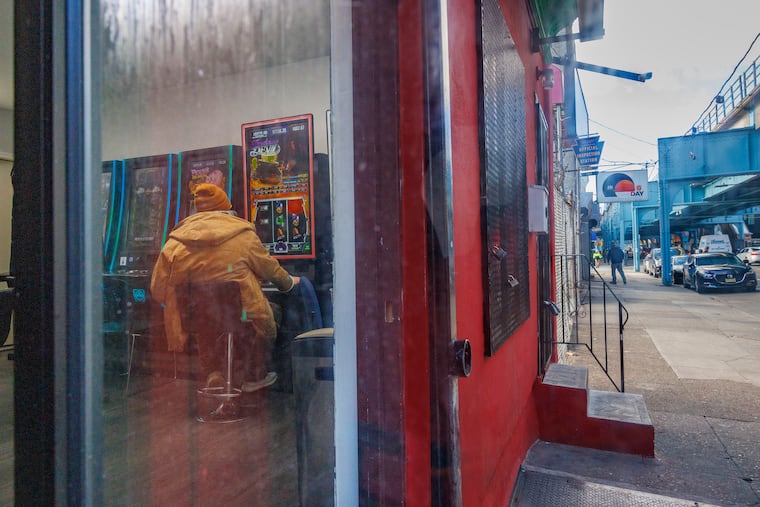Commonwealth Court lifts city ban on casino-style ‘skill games’ in Philadelphia
A law prohibiting the machines was signed into law in April. The issue of their legality in the state is still being litigated.

Pennsylvania’s Commonwealth Court on Friday lifted Philadelphia’s ban on casino-style “skill games” in convenience stores that were targeted as crime-attracting nuisances.
Whether the games can be banned in Pennsylvania is already a matter before the state Supreme Court, and Gov. Josh Shapiro and state lawmakers may pass legislation making them clearly legal for the purposes of regulation and taxation.
The city’s ban, pushed by Councilmember Curtis Jones Jr. and signed into law by Mayor Cherelle L. Parker in April, was upheld in June by Common Pleas Court Judge Sierra Thomas-Street, who denied an emergency request to stop the city from enforcing the law.
Commonwealth Court stayed the lower court’s decision pending the appeal brought by G&B Amusements, a skill games distributor, and Harry Sandhu, a gas station owner in Philadelphia.
The unregulated slot machine-style games allow customers to pay for a chance to win a cash prize after completing a simple game. There are estimated to be tens of thousands across the state.
Mike Barley, a spokesperson for the Georgia-based Pace-O-Matic, a manufacturer of the consoles, hailed the appellate court’s ruling as “a victory for Philadelphia small businesses that count on the supplemental income they receive when patrons play” the games in their establishments.
“This ban did nothing more than harm businesses that are already struggling because of the economy,” Barley said Friday in a statement.
A spokesperson for Jones said his office had received the ruling but did not have an immediate comment.
The city was reviewing the decision before making any comment, a spokesperson said.
Matthew H. Haverstick, a lawyer representing G&B Amusements and Sandhu, said Friday in a statement: “We’re gratified that the Court stepped in to prevent real harm to small businesses throughout Philadelphia that rely on the POM [Pace-O-Matic] Game to make ends meet.”
The Commonwealth Court decision, written by Judge Patricia A. McCullough, noted that according to G&B Amusements and Sandhu, the city began enforcing the ban on Oct. 14, when police issued “notice of violation and warning” to businesses with the machines on their premises and ordered that they be removed by Oct. 21.
The city then followed up with second warnings threatening $1,000 daily fines and revocation of business licenses, McCullough wrote.
McCullough said Commonwealth Court had already ruled that the machines that are not present in casinos or racetracks are neither “slot machines” as defined by state law nor illegal gambling devices. That separate case is now before the state Supreme Court.
“As the law stands today, POM [Pace-O-Matic] Games that are located outside of regulated facilities are neither illegal nor regulated,” McCullough wrote.
Shapiro has proposed regulating the machines and creating a 42% tax on their sales.
Pennsylvania taxes and heavily regulates gambling games, such as casino slot machines. Makers of the so-called skill games contend that they are different because they require elements, such as a simple memory game, before customers can collect cash payouts.
Opponents have argued that the skill element is merely a pretense and that the games are actually illegal slot machines.